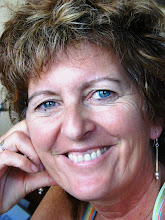Reflections on Memorial Day
I googled "What is Memorial Day". "Memorial Day is a United States public holiday that takes place on the last Monday of May. It was formerly known as Decoration Day. This holiday commemorates U.S. men and women who died in military service for their country." The thought of this celebration made me uncomfortable. How come we celebrate individuals who get killed in wars? What is loable about it? I thought that my question was provocative, i thought how any family member who lost a beloved one in war would react to such a statement, that seems disrespectful of their pain. They have such a loss and I'm not even willing to honor it in a little, single day whithin a whole year!? I can hear them saying 'What kind of monster is she!? But then I continued thinking. There is something strange in honoring the cost of something that is a questionable practice to begin with. How would that be different from honoring those that died in a car race accident? Yes, i know the answer. One thing is to service the cause of peace, defense, human rights, soveraignty etc - and another to be a race car driver. It is different - if we assume that wars are the way - the only way- to handle issues of peace, defense, human rights, soveraignty. Are they? What a naive question. Of course it's not the BEST, but it's the only choice, as others are doing it too. Wait a moment. Does that make it right? Because everyone cheated on taxes in Argentina, did that make it right? Because everyone in Rome watched the individuals fight with lions, did that make it right? Because we used to smoke in airplanes, use asbestos in construction, throw polluted water into the rivers, sculpt elephant tusks ....? Does a habit make the practice right, just because we're used to do it? As long as we take it for granted and don't question it, it won't change. So that's why a Memorial Day is needed. I think we should have actually more than one. We should also have a Polluted Water day; a Torture Day; Polar Bear Extinction Day; an African Aids Orphan Starved Day; an International Homeless Day; a RainForest Memorial Day; an End of Oil Day...




